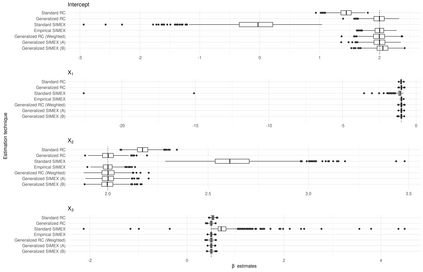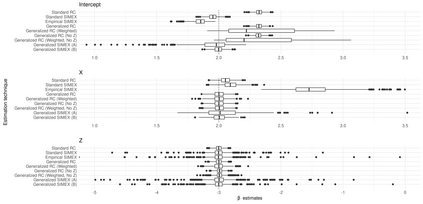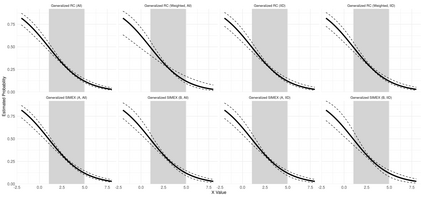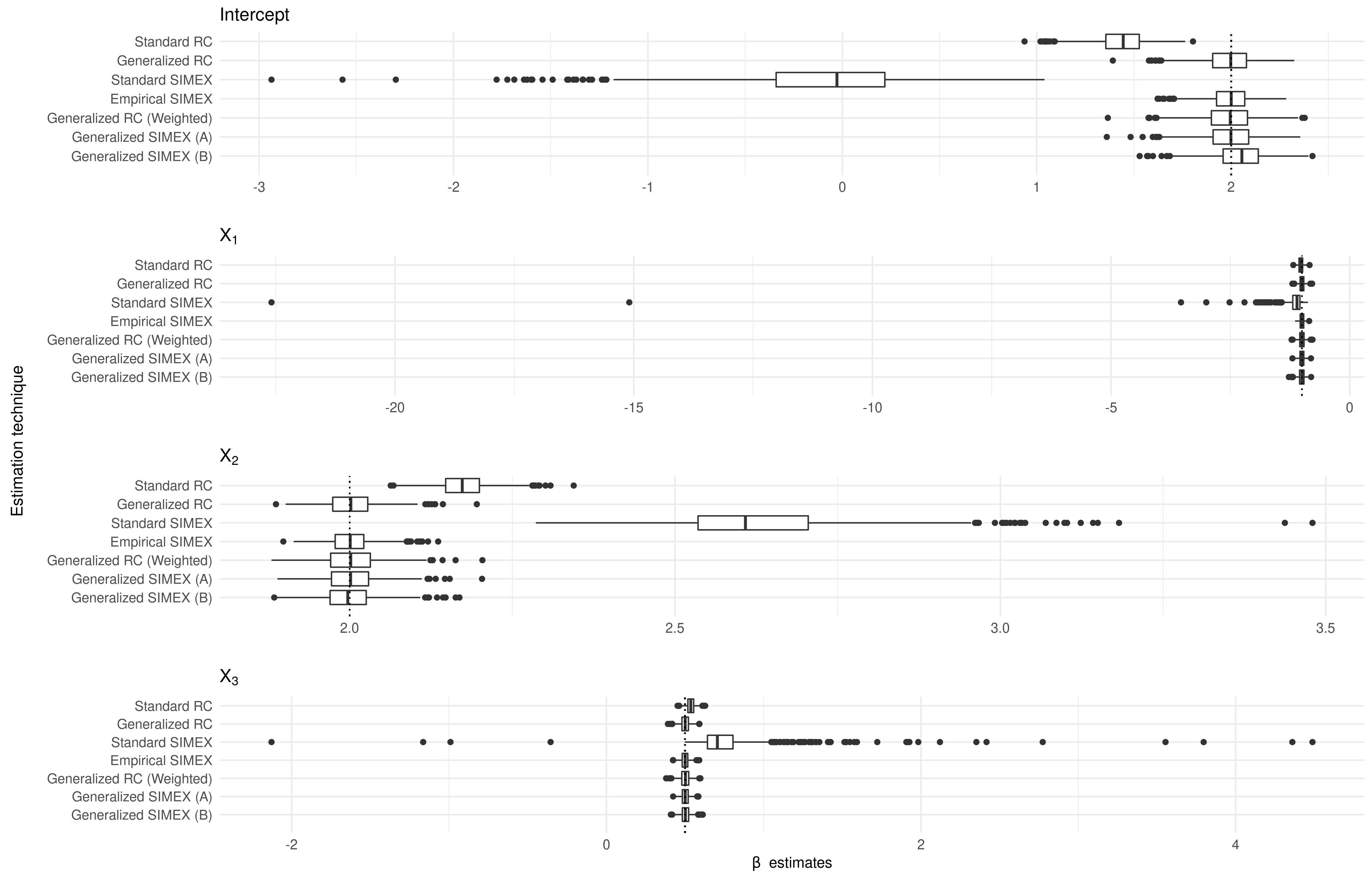Measurement error is a pervasive issue which renders the results of an analysis unreliable. The measurement error literature contains numerous correction techniques, which can be broadly divided into those which aim to produce exactly consistent estimators, and those which are only approximately consistent. While consistency is a desirable property, it is typically attained only under specific model assumptions. Two techniques, regression calibration and simulation extrapolation, are used frequently in a wide variety of parametric and semiparametric settings. However, in many settings these methods are only approximately consistent. We generalize these corrections, relaxing assumptions placed on replicate measurements. Under regularity conditions, the estimators are shown to be asymptotically normal, with a sandwich estimator for the asymptotic variance. Through simulation, we demonstrate the improved performance of the modified estimators, over the standard techniques, when these assumptions are violated. We motivate these corrections using the Framingham Heart Study, and apply the generalized techniques to an analysis of these data.
翻译:测量误差是一个普遍的问题,使得分析结果不可靠。测量误差文献包含许多纠正技术,可以大致分为旨在产生完全一致的测算器的技术,以及大致一致的技术。虽然一致性是一种可取的属性,但通常只在具体的模型假设下才能实现。两种技术,即回归校准和模拟外推法,经常在各种参数和半参数环境中使用。然而,在许多环境中,这些方法只是大致一致的。我们对这些更正进行了概括,放松了在复制测量上所作的假设。在常规条件下,估计器显示为零星常态,用三明治测算器标出无症状差异。通过模拟,我们展示了经修改的测算器在违反这些假设时比标准技术更好的性能。我们用Framingham Heart研究来激励这些校正。我们用通用技术来分析这些数据。








